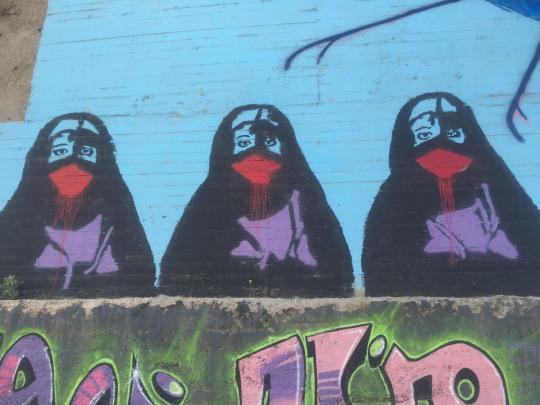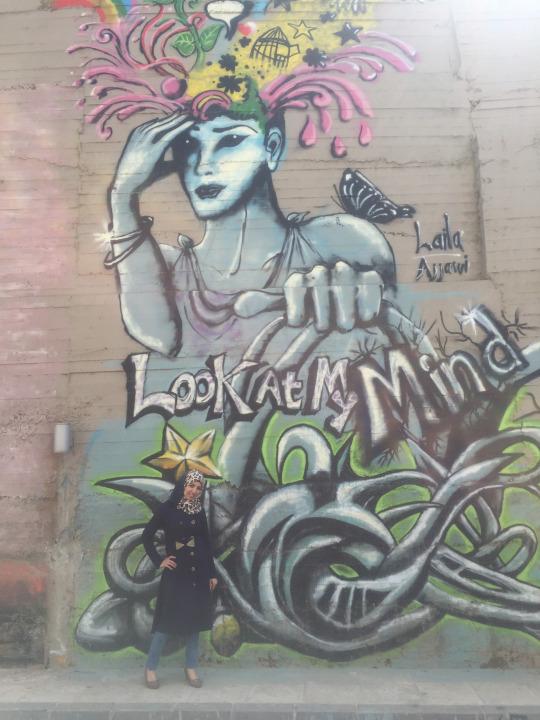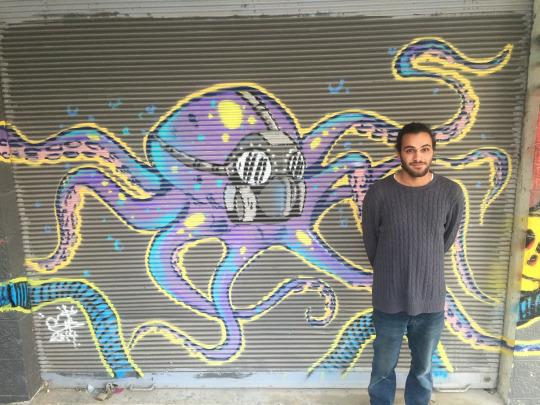On the road from the airport in Amman to the city’s center — one thing becomes obvious: not only does the city have a lot of graffiti everywhere… but it seems to be celebrated.
And when you look a little closer, you start to realize it’s not just haphazard graffiti. It‘s art — and there’s a message.

I met up with Laila Ajjawi, a budding graffiti star. Her mural is part of the Women On Walls project behind the Ras Al Ain Gallery in Amman, Jordan’s capital. The wall that features the project is the longest graffiti wall in the Middle East and the artwork is all created by female artists.

Laila’s mural, “Look at my Mind”
“My mural is about what’s in my mind. What people can’t — or won’t — see,” Laila said. She is a Palestinian refugee who has a Jordanian passport. Laila grew up in a Palestinian refugee camp in the north of Jordan. She had taken a four-hour bus ride from there to meet with me.
“it’s about expression, and I try to use my art to tell a story and help others express themselves.” Laila’s main medium is oil paint and this was her first graffiti project.
“I want to do more and art can be a conduit for change,” she told me. “There are so many issues facing women in the Middle East: women’s rights — how we are treated, for example. Right now, if you are a woman and a Jordanian and have a child with a Palestinian, your child will not have Jordanian citizenship. Citizenship is passed down only through men.” Laila has done a lot of work in the refugee camps — Palestinian, Iraqi, and Syrian — helping women confront their fears and their situations through art.
Suhaib Attar is another local graffiti artist in Amman.

Suhaib Attar with his oceanic creation in Amman
“My parents were worried [about art as a career choice] at first, but they are okay with it now,” Suhaib said.
“People will call me to come in and do projects — it’s great. A few years ago the street art scene was almost non existent, but it’s flourishing now,” he continued. “I also do a lot of work with Syrian refugees and the children in those camps, getting them to try to open up about how they feel and what is going on. What they’ve been through is just awful. It’s horrific — and they are not allowed to leave the camps.”
Suhaib works with AptArt, an organization that uses art to inspire children in conflict zones to breed positivity instead of hate.
“ISIS and the civil war has robbed them of their childhood,” Suhaib said.
